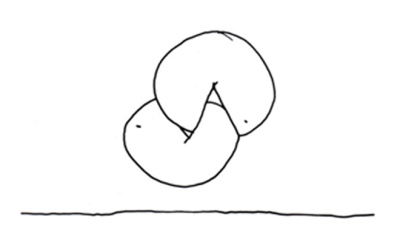
Are you a master of manipulation?
As I opened one of my clients weekly coaching emails this week, I laughed out loud, as I read her opening line; “Hi, my name is Cindy and I am a Master Manipulator!” Cindy’s email went on to detail, to her complete amazement and more giggles from me, at least 24 different occasions she had discovered her covert attempts to get her own way, and all in only a 24 hour time frame. As my week continued I discovered a similar trend amongst a number of my executive clients and each one of them have begun an incredibly empowering transformation.
The stark, and as they said, “cruel realization” for these seemingly loving, honest, and successful men and women is they are being far from direct, forthright, and real in their communication as a manager, parent, lover, or friend. That, in fact, they, as we all can, often attempt to manipulate people and situations to get their own needs and values met.
As one of my clients said, “the paradox of manipulation is that we are often so masterful at it; we actually delude and deceive ourselves that we can even do it! In reality we may even rely upon it as our default, yet we will kick and scream if you accused us of such.”
Given we have all attempted manipulation at some time or other (yes, even me and you!) what is it that recruits otherwise intelligent, kind, and mindful people to such primitive behaviour? How can you detect if you have been seduced into such, well before others let you know how disgusted they are in your approach?
Step 1. STOP and listen
Do you come directly to the point and express what you want and expect from others?
Or, do you hint, imply, and hope through your “unseen” tactics your prey (staff member, manager, lover, child, etc.) will come to meeting your expectations, seemingly without you having to make a request?
When you feel the possibility of conflict in the air, do you tune your ears, alert your eyes, and notice the opportunities for masterfully navigating and “managing” the situation to your desired outcome? Do you applaud yourself for such skill? Do you even reward yourself for your expert ability?
Do you almost always avoid disagreeing? Do you almost always attempt to please people with the hope they find you accommodating and will do the same for you?
Do you think through strategically who you need to have like you, believe in you, and then focus on how to win them over so you can get them onside for your next move? Do you identify who you need to keep out, who you need to make look “bad” in order for you to look your best?
Do you react and/or express anger, hurt and resentment when others don’t do what you wanted them to do, even when you did not ask? Have they now learnt to try and avoid your wrath, by trying to please you, even when you won’t tell them what you need and want?
If you answered these with brute honesty, and said YES to any of these questions apart from the first one; you have the real possibility of attempting to manipulate others with your behaviours.
Step 2. Okay so you do it!
In order to adopt and sustain new choices in behaviour, firstly having awareness of when, where and how you attempt to manipulate is critical. According to early psychologists Freud, Adler, and Jung awareness alone can be curative. As you heard from my client Cindy, this step can be confronting, disturbing, and ultimately even liberating when you can see, hear, and feel the extent and consequence of your manipulative behaviour.
Make a journal, share with a friend, coach, partner etc. the extent of this behaviour. You will know you have achieved awareness and acceptance when you can easily identify your unique attempts at manipulation and can recognise these behaviours; after you have done them, then while you do it, and eventually before you do it.
Remember, acceptance does not mean you like, love or even condone the behaviour. It simply means your recognise and can deal with the reality of your speech and actions.
Step 3. Stop personalising.
Until we know better, it can be easy to get our behaviour and sense of self confused so that we treat them as the same. You have often heard people turning a limited behaviour into an identity, haven’t you? Eg “I am a drunk”, rather than I drink too much. “I am a failure” rather than I did not succeed in a specific project and in our context; “I am a manipulator” rather than I have some manipulative behaviours.
Each time you make the error of labeling your behaviour as your identity you make the process of change one hundred times harder. Think about it… when you do this you have unnecessarily put your whole sense of self and identity on the line, to the degree you have locked yourself in the constraints of the label you have given yourself. You are in fact, more than your behaviours, are you not? If you do not succeed in one project that does not make you a complete human failure, does it? The correct answer is; of course not!
As you label yourself this way, does it help you feel resourceful and strong in yourself as you attempt to create change in your life? For most of us, it is obvious it does not.
Therefore taking on the identity of being a manipulator rather than keeping it as a behaviour for most of us will not help us feel resourceful, strong and courageous to develop new behaviours.
Notice what you are saying to yourself and others about your limited manipulative behaviour. If you start to hear yourself labeling and personifying the behaviour, you may need to stay at this step until you are clear your behaviour is separate from who you are . Repeat after me, “I am more than my speech and behaviours…” Do this until you believe it. Got it?
Step 4. Make a decision.
Okay… now you know when, where, and with whom you attempt to manipulate, you have accepted the reality that you, like many of us attempt to manipulate, and you know it is just a behaviour and not who you are. So, what are you going to do about it? Have you stopped to make a decision to give it up? Have you decided to be direct and forthright and real in your speech and actions?
For some of you this will be enough and you will be on your way to already seeing the new choices you have for being direct and forthright. Yet for others, you may have internal voices inside screaming or even quietly objecting that if you stop this old way of dealing with people and situations you will…. ? You could…? They will or could…?
Explore all of these objections and ask yourself if you wish to take counsel of these. Extract anything useful from them. Identify the consequences of the consequences if you continue with the limited few choices of behaviour you seem to choose from in getting your needs and values met. Keep the spotlight on the consequences of these consequences until you see and feel how restricted you really are in getting your needs and values met.
When you reach this point, you will know because you will feel that you want to change. You want to give up this old way of operating. Breathe in, let go of any of the other objections, and step through the door way to the new world where you can have many empowering choices for getting your needs and values met.
Step 5. Try on the new choices
If you were free to be transparent, direct, and forthright in your communication, what personal principles would guide you? What would you believe to be able to respond this way? What would be important to you? What would you value?
Spend time creating new internal awareness that supports and reinforces how you want to speak and act. This will require you to be encouraging with yourself as you try on this new way of thinking and feeling. It may not feel familiar and you may feel like it is not immediately solid. This is the time to only focus on adding the reinforcing ideas, beliefs, and evidence for such.
You may start to look for others in the world for which thinking this way is a piece of cake in getting their needs and values mostly met. If possible observe them, interview them, and find out how they think and feel about such. Take onboard anything that you can that will help reinforce your thinking and feeling for speaking and acting in this seeming new way.
Step 6. Start in with small steps
Now you have strong beliefs and values that guide your new way of operating, identify a list of new ways of speaking and acting for all the different situations you were once seduced into that old attempt at manipulating.
With your list in hand, start with the tiniest step where you believe you can absolutely now achieve the new actions or words. Remember, this will require choosing the smallest new step first, before attempting the ones you feel may be more of a stretch.
As you try these new behaviours on, remember to recognise and acknowledge yourself that you are responding differently to how you once did. Celebrate and applaud your new behaviour no matter how small your first steps are. Based on the evidence from the work of Skinner, Watson, and Pavolv from the field of behaviorism we know that the more that you can count, validate, and reinforce the smallest improvement in behaviour, the faster you will create and sustain a behavioural change.
For those of you who also like external reinforcement, ask others to support you, to help you see and hear your new empowering actions and words.
While we often do not realize it, we have many new options and choices to respond to business, people, and ourselves than the few options we usually default and rely upon.
As you now explore new choices for yourself in speaking directly, responding forthrightly and empowering yourself and others, how will your world change? What will open up for you as a manager, lover, parent and friend? Who will be the first person to notice these changes in you? And what will be different about you?







